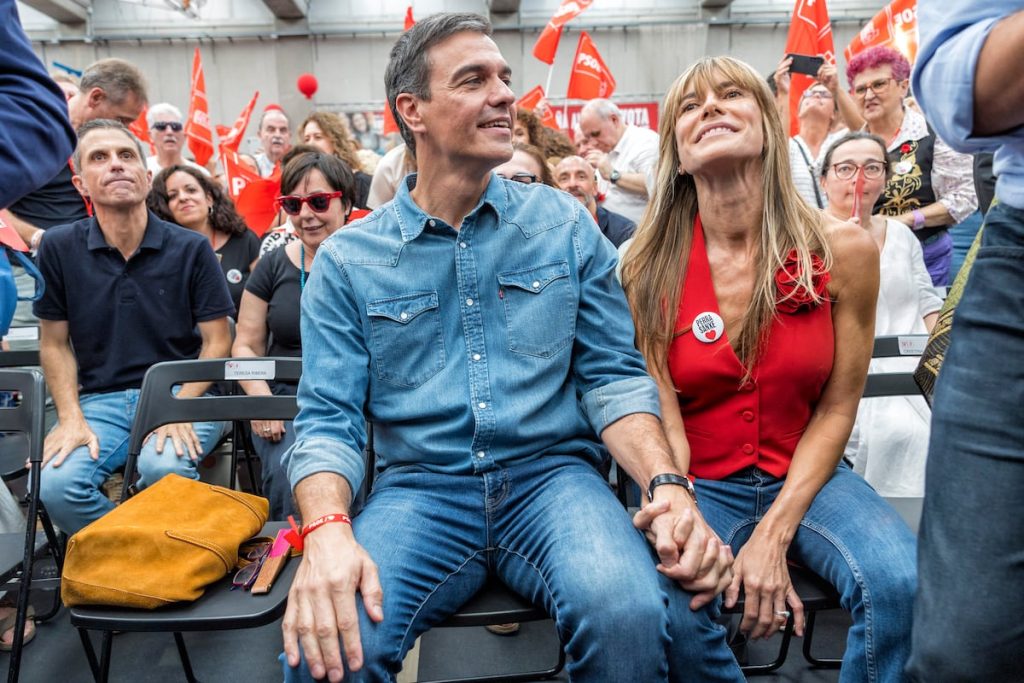After years of feminist struggle, romantic love is making a comeback. How should we analyze this unexpected turn of events? Is a comedic or dramatic tone more appropriate? And what does Political Science have to say about it? Or Netflix, in case we are looking for a series to watch, since books can be boring. Baron Noir, House of Cards, or Bridgerton, perhaps? As I listened to Sánchez, I thought of a phrase by the Italian journalist and suffragette Anna Garofalo, who described the historic morning when 12 million women (Catholics, socialists, communists) conquered the right to vote to build the new post-war Italy: “We grabbed our ballots as if they were love letters.” This is beautifully depicted in “Always Tomorrow,” Paola Cortellesi’s debut film that has captivated audiences in Italy. In contrast to the patriarchal submission of romantic love, they reclaimed its rationality. The contrast is stark: holding onto emotionality and emerging unscathed is a male privilege.
I’m not sure if Sánchez will come out unscathed in the end, but the recent events in our country seem like a melodramatic script from a TV series: a strong, solitary man, cornered by a dirty war against him and his family, confesses his love to us in a fragile, trembling voice. It’s both a western and an anti-western. It’s hard not to notice the contrast: imagine Jacinda Ardern or Sanna Marin, surviving as prime ministers after a confession like that: “I am deeply in love with my husband and that’s why I am staying.” Perhaps it’s hard to imagine because making everyone take care of your mood swings and returning as if nothing happened is a symbol of anti-leadership. Unless you are a good-looking man. As Óscar Puente said, the “freaking boss.” What we didn’t expect was for this apparent defense of the sensitive and human side to be combined with the oldest power techniques, with politics as a secret, as a thriller and melodrama. Generating suspense, capturing all the attention while remaining impenetrable and elusive is something only the Vatican can achieve. White smoke or black smoke? It doesn’t matter, as long as we stay tuned to the screens. That is the ultimate secret of power.
Sánchez has informed us that the smoke was white after communicating to the head of state his indecision, but he has not mentioned the pristine measures of democratic regeneration or resistance to ensure that all of us, our loved ones, and ourselves are protected. What he has provoked is reflection, although the path of this collective meditation may be short because Sánchez has managed to mobilize his bases and align them for the upcoming campaigns. Are we not dust, but dust in love? Who knows: in the next elections, perhaps we will grab our ballots as if they were love letters. This combination of vulnerability and manipulation in the political sphere has blurred the lines between sincerity and strategy. It raises questions about the true intentions behind public displays of emotion and the calculations that lie beneath the facade of human connection.
The intertwining of public and private narratives creates a complex web of emotions and power dynamics. The use of personal anecdotes and emotional appeals in political discourse blurs the boundaries between intimacy and manipulation. By framing political decisions within the context of personal relationships and emotions, leaders can elicit empathy and support from the public, but they also risk undermining the authenticity of their actions. Sánchez’s confession of love for his family may have been an attempt to humanize himself and appeal to the emotions of the electorate. However, it also raises questions about the authenticity of his motives and the impact of using personal relationships as a political tool. This intersection of personal and political spheres highlights the complexity of leadership and the challenges of navigating the blurred lines between vulnerability and manipulation.


